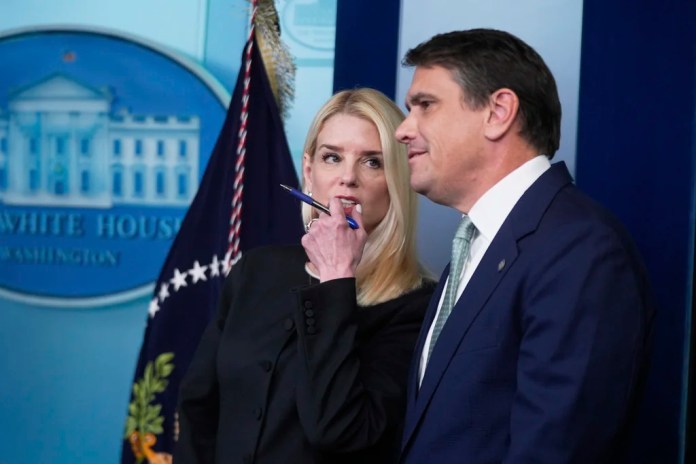Salvadoran migrant Kilmar Abrego Garcia will remain in the United States through at least late November, according to new court filings, as the Justice Department fights to avoid a subpoena for the testimony of its second-in-command, Deputy Attorney General Todd Blanche.
The extension marks the latest turn in a monthslong legal battle that has placed Abrego Garcia, 30, at the center of the Trump administration’s stepped-up immigration enforcement strategy. His case is unfolding on two fronts: a civil fight in Maryland over his removal and a criminal prosecution in Tennessee, with both courts now probing whether the government pursued charges against him as retaliation.

U.S. District Judge Paula Xinis in Maryland, who blocked Abrego Garcia’s deportation in August, approved a new schedule Tuesday allowing him to remain in the country to participate in a two-day evidentiary hearing next week in Nashville. That hearing, ordered to take place next week by the federal court in Tennessee, will examine whether the DOJ engaged in “selective” or “vindictive” prosecution when it brought criminal charges stemming from a 2022 traffic stop. Xinis also ordered both sides to return to her courtroom before Thanksgiving for a motion hearing, which will, in part, consider the government’s motion to dissolve her injunction preventing the immediate deportation of Abrego Garcia.
Meanwhile, in Tennessee, U.S. District Judge Waverly Crenshaw is weighing whether to compel Blanche, Trump’s former personal attorney and current second-in-line to the attorney general, to testify at the hearing. Abrego Garcia’s legal team argued that testimony from the DOJ’s No. 2 is necessary to determine who authorized the prosecution and why. Crenshaw has also ordered the DOJ to turn over internal communications tied to the decision to pursue the case, which resulted in two immigrant-smuggling charges returned by a grand jury in May.

Shortly following Abrego Garcia’s return to the U.S., Attorney General Pam Bondi and Blanche held a brief press conference announcing the charges he would face in Tennessee. If the case is not dismissed, a trial is set to commence early next year.
DOJ lawyers initially told Xinis on Monday that the administration intends to deport Abrego Garcia to Liberia as soon as Friday, Oct. 31, regardless of the pending criminal proceedings, and would already have done so if not for her injunction barring his deportation. It remains unclear what assurances, if any, Liberia has provided about his status there or whether it has agreed not to send him to El Salvador, in lieu of a 2019 immigration order barring his removal there.
TRUMP ADMINISTRATION SCRAMBLES TO FIND COUNTRY TO TAKE ABREGO GARCIA BEFORE JUDGE ORDERS RELEASE
Separately, Crenshaw reprimanded Homeland Security Secretary Kristi Noem and Bondi on Monday for recent public comments about the case, calling them “exaggerated if not simply inaccurate” and in violation of local court rules. He ordered prosecutors to formally remind all DOJ and DHS employees of the restrictions on public statements.
Crenshaw will review the internal DOJ documents privately before next week’s hearing and decide what must be disclosed to the defense. Under his order, Abrego Garcia must respond to the government’s motion to quash the Blanche subpoena by Wednesday, with a DOJ reply due by noon on Thursday.
